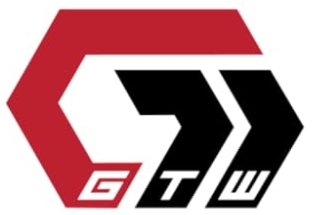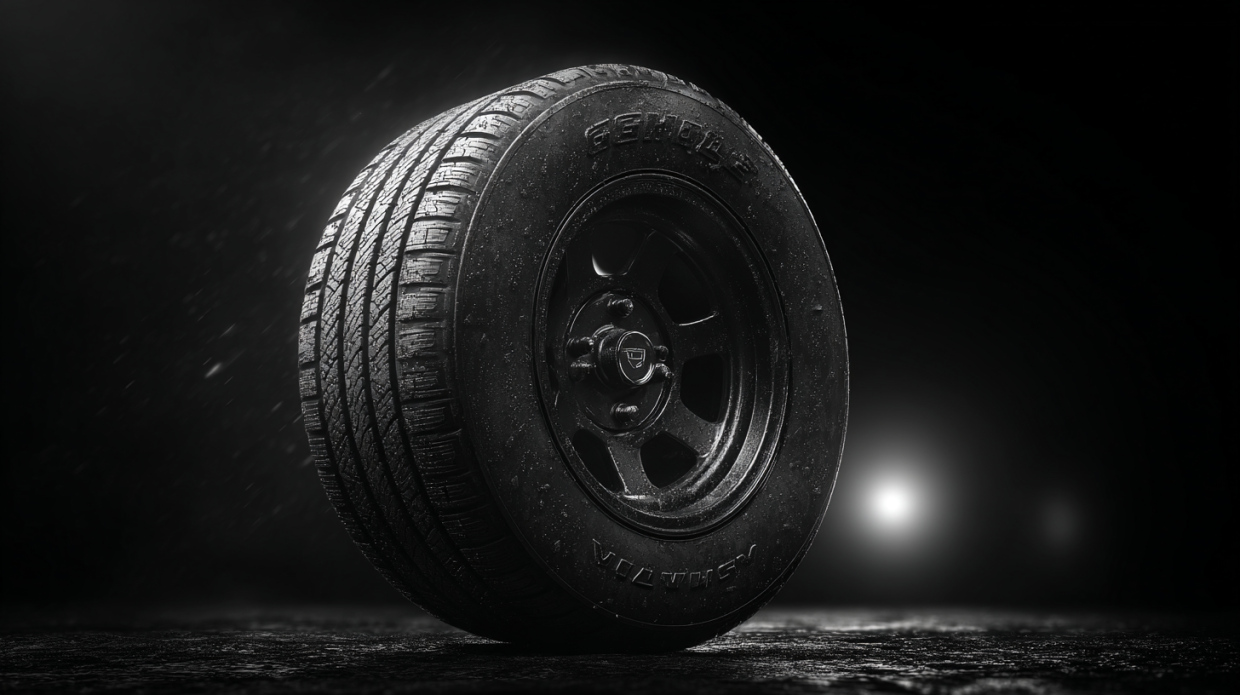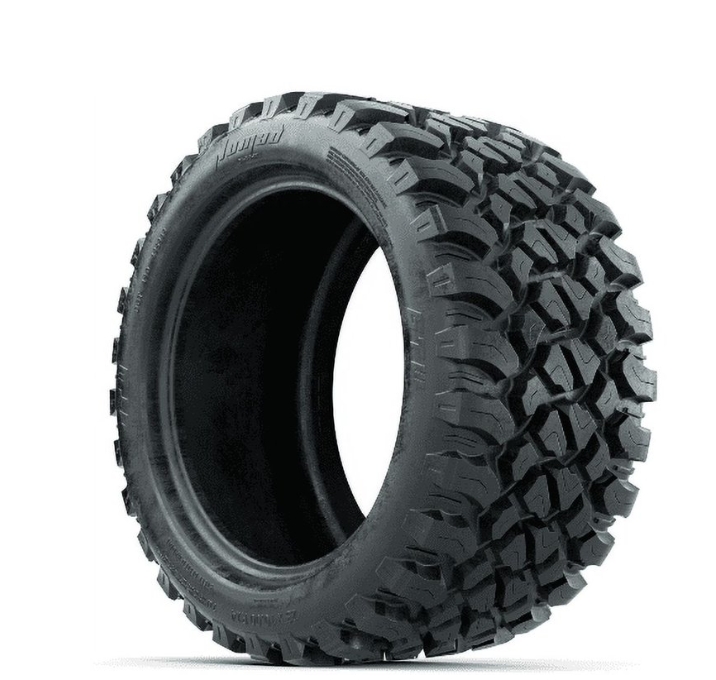
GTW 23×10-R14 Nomad Steel Belted Radial All Terrain Golf Cart Tire
- THE RIGHT SIZE: 23×10-R14 (approx. 23″ tall) Steel Belted Radial All-Terrain Tire fits 14 inch wheels; Lift Kit Required on Most Golf Cart Applications
- EXCEPTIONAL PERFORMANCE: All-Terrain traction is ideal for all driving conditions and weather, and steel belted radial construction provides even wear and longer life
- QUALITY DESIGN: Large, scalloped side blocks for increased rigidity and grip and asymmetric tread for improved contact and reduced road noise
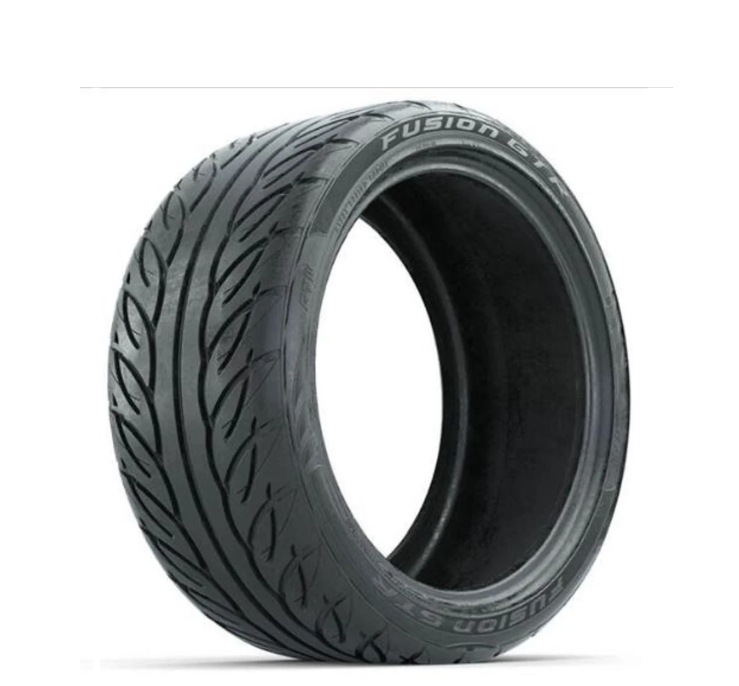
GTW Fusion GTR (4ply) Radial Golf Tire [215×40-15]
- The GTW Fusion GTR Steel Belted High-Performance Street Radial tire offers a smooth ride with low road noise. Premium rubber compound and radial steel belted radial construction with up to two times the durability and longevity of other tires. Integrated tread wear indicators.
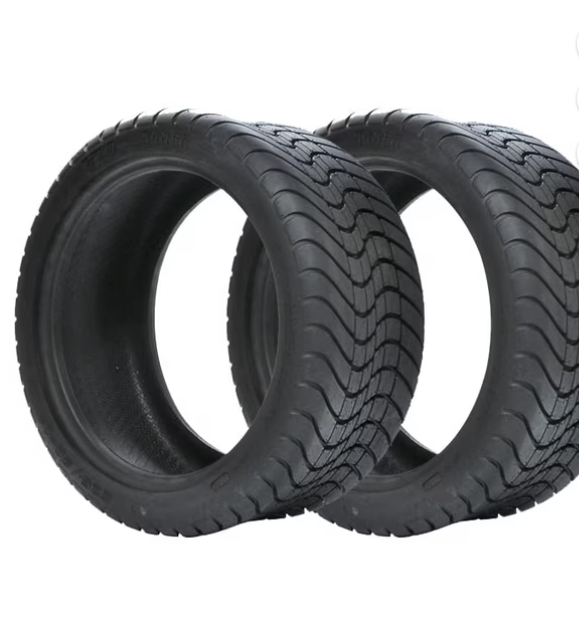
GTW 215/35-12 Mamba Street Tires for Club Car, EZGO, Yamaha Golf Carts – 1, 2, 4
- GTW 215/35-12 Mamba Street Tires for Club Car, EZGO, Yamaha Golf Carts – 1, 2, 4
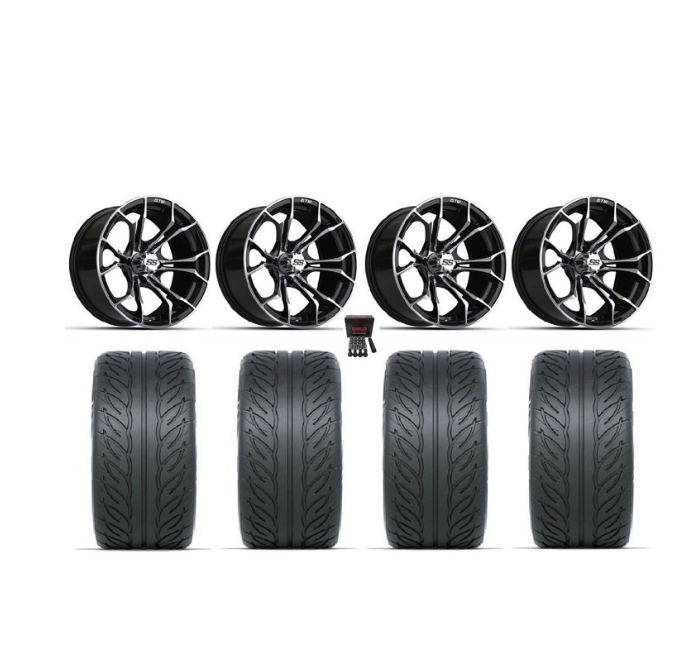
GTW Spyder 15″ Golf Wheels Gloss Bk Fusion GTR 215×40-15 Tires Yamaha
- (4) GTW Spyder 15×7 Golf Cart Wheels – Gloss Black (3+4) [19-306]
- (4) GTW Fusion GTR (4ply) Radial Golf Tires [215×40-15]
- (1) Gorilla 1/2″ x 20 Lug Kit & Valve Stems – Black [K4CS-00012BGR]
- (4) Tires Mount on Golf Cart Wheels
Transform Your Ride from Ordinary to Extraordinary
In the world of golf cart enthusiasts, few components make as significant an impact on performance, comfort, and style as the tires you choose. Whether you’re cruising through neighborhood streets, navigating challenging terrain on your property, or actually using your cart on the golf course, the right set of GTW tires can completely transform your driving experience. Today, we’re diving deep into everything you need to know about GTW tires—a brand that has quietly been revolutionizing the golf cart tire industry with innovation, quality, and performance.
As someone who has spent countless hours researching, testing, and experiencing different golf cart modifications, I can confidently say that tire selection deserves far more attention than it typically receives. The right tires not only determine how your cart handles but also influence energy efficiency, maintenance requirements, and even the overall lifespan of your vehicle.
So grab a beverage, get comfortable, and join me as we explore the comprehensive world of GTW tires. Whether you’re a seasoned golf cart modifier or simply looking to replace worn-out rubber, this guide will equip you with everything you need to make an informed decision about your next tire purchase.
What Exactly Are GTW Tires?
GTW tires represent a specialized line of golf cart tires designed to deliver superior performance across various applications. Unlike standard original equipment manufacturer (OEM) tires that come with most golf carts, GTW tires are engineered with specific use cases in mind—whether that’s enhanced street performance, aggressive off-road capability, or a balanced approach for mixed-use scenarios.
The GTW brand has built its reputation on understanding the unique demands placed on golf cart tires. Unlike regular automotive tires, golf cart tires must balance durability with a relatively lightweight construction, provide adequate traction without excessive energy consumption, and maintain comfort while navigating varied terrain. It’s a delicate balance that GTW has mastered through years of research and development.
What truly sets GTW tires apart is their attention to the evolving uses of modern golf carts. Long gone are the days when these vehicles were confined to manicured fairways. Today’s golf carts serve as neighborhood transportation, utility vehicles, and even off-road recreational machines. GTW has responded to this evolution by creating tire options that cater to each of these applications without compromising on quality or longevity.
The Minds Behind the Rubber: Who Makes GTW Tires?
GTW tires are manufactured by Jake’s Carts, a well-established name in the golf cart accessory and modification industry. The company has been developing golf cart components for over two decades, building a reputation for quality, innovation, and customer satisfaction.
What many people don’t realize is that Jake’s Carts began as a small family operation dedicated to improving golf cart performance. Their journey into tire manufacturing came from recognizing a significant gap in the market—while carts were being used in increasingly diverse environments, tire options remained limited and often subpar.
The GTW tire line represents their solution to this problem. By leveraging relationships with specialized rubber manufacturers and applying their extensive knowledge of golf cart performance needs, Jake’s created the GTW brand to deliver tires that outperform traditional offerings in specific applications.
Today, GTW tires are produced in specialized facilities that focus exclusively on small-vehicle tire manufacturing. This specialization allows for tighter quality control and more consistent performance than you might find from manufacturers who produce golf cart tires as a sideline to their automotive tire business.
Are GTW Tires Actually Good for Golf Carts?
This question comes up frequently, and the simple answer is a resounding yes—but with an important qualification. GTW tires excel when matched appropriately to your specific usage pattern and cart configuration.
For pure golf course use, GTW offers low-impact tires that provide excellent traction on manicured turf without causing damage or leaving marks. These tires typically feature a specialized tread pattern that displaces weight evenly while still providing the grip needed for hills and wet conditions.
For street use, GTW’s street-oriented tires deliver smoother rides, better handling at higher speeds, and improved energy efficiency compared to standard tires. The rubber compounds used are optimized for pavement contact, and the tread patterns are designed to minimize noise while maximizing traction on smooth surfaces.
Where GTW truly shines, however, is in their all-terrain and specialized off-road options. These tires feature aggressive tread patterns, reinforced sidewalls, and puncture-resistant construction that can handle challenging conditions while still providing a reasonable ride quality on smoother surfaces.
The key to satisfaction with GTW tires lies in proper selection. A street tire will disappoint in mud, just as an aggressive off-road tire might provide an unnecessarily harsh ride on pavement. When matched correctly to your needs, however, GTW tires consistently outperform standard options in longevity, handling, and overall satisfaction.
The Full Spectrum: What Sizes Do GTW Tires Come In?
One of GTW’s greatest strengths is their comprehensive size range, ensuring compatibility with virtually any golf cart on the market. Their current lineup includes:
Standard sizes:
- 18×8.5-8
- 18×9.5-8
- 20×10-10
- 22×10-10
- 22×11-10
- 23×10-12
- 23×10.5-12
- 25×10-12
Low-profile options:
- 205/30-12
- 205/35-12
- 215/35-12
- 215/40-12
Oversized specialty sizes:
- 23×10.5-14
- 25×10-14
- 25×12-14
This diverse size range allows GTW to accommodate everything from stock golf carts to heavily modified custom builds. The low-profile options have become particularly popular for street-focused applications, providing improved handling and a more automotive-like appearance.
It’s worth noting that GTW consistently updates their size offerings based on market demands and emerging trends in golf cart modifications. This responsiveness to user needs has helped cement their position as an industry leader.
When selecting a size, it’s important to consider not just what will fit your cart, but how different dimensions might affect performance. Wider tires generally provide better stability and traction but may increase rolling resistance. Taller tires increase ground clearance but can affect acceleration. GTW’s customer service team is known for providing excellent guidance on these considerations for specific cart models.
Availability: Where Can I Purchase GTW Tires?
GTW tires are widely available through multiple purchasing channels, making them accessible regardless of your location or shopping preferences.
Authorized dealers represent the most common source for GTW tires. These businesses typically specialize in golf cart sales, service, and modifications, and their staff can provide valuable guidance on selecting the right tire for your specific needs. The dealer network spans across North America, with particularly strong representation in regions where golf cart usage is common—Florida, Arizona, California, and throughout the Southeast.
Online retailers have become increasingly important distribution channels for GTW products. Major e-commerce platforms like Amazon carry select GTW models, while specialized golf cart parts websites like Golf Cart Tire Supply and Golf Cart King offer the complete lineup. These online options often provide competitive pricing and the convenience of home delivery, though you sacrifice the personalized advice available from dealerships.
Direct purchasing from Jake’s Carts’ official website is also possible, giving customers access to the full catalog along with detailed specifications and application recommendations. The direct channel sometimes offers exclusive models or early access to new releases before they reach the broader distribution network.
For those seeking the best possible pricing, it’s worth noting that GTW frequently runs promotional discounts through their dealer network, particularly during seasonal transitions when golf cart usage patterns shift in many regions.
Investment Considerations: How Much Do GTW Tires Cost?
GTW tires span a relatively wide price range, reflecting their diverse applications and performance characteristics. As of my latest update, here’s what you can expect to invest:
Entry-level GTW tires designed for basic replacement typically range from $45 to $65 per tire, positioning them as a mid-range option compared to the broader market. These tires offer noticeable improvements over the most basic options while remaining affordable for routine maintenance.
Mid-range specialized tires, including their popular street-oriented and light off-road models, generally fall between $65 and $90 per tire. This category represents the sweet spot for many users, offering substantial performance improvements without reaching premium price points.
Premium specialized tires, particularly those designed for aggressive off-road use or featuring advanced tread compounds and reinforced construction, range from $90 to $130+ per tire. While this represents a significant investment, these tires typically offer dramatically improved performance in challenging conditions along with extended longevity.
It’s important to note that purchasing GTW tires as complete wheel assemblies (tires mounted on compatible rims) will naturally increase the investment but can simplify installation and ensure proper fitment. These complete assemblies typically add $50-80 per wheel to the tire cost.
When considering cost, remember that tire performance directly impacts overall vehicle efficiency, maintenance requirements, and the lifespan of related components. Higher-quality tires often prove more economical over their lifetime despite higher initial costs, particularly when their improved traction reduces wear on drive components or prevents damage from loss of control.
Beyond the Fairway: Are GTW Tires Suitable for Off-Road Use?
This question touches on one of GTW’s greatest strengths. While many golf cart tire manufacturers focus primarily on turf-friendly designs, GTW has embraced the evolution of golf carts into versatile utility and recreational vehicles.
GTW’s off-road tire lineup is extensive and purpose-built for different types of terrain challenges. Their most aggressive models feature deeply channeled tread patterns that excel in mud, loose soil, and uneven surfaces. Reinforced sidewalls protect against punctures from rocks and debris, while specialized rubber compounds balance grip with durability.
The “Barrage” series represents GTW’s flagship off-road offering, with an aggressive directional tread pattern that provides excellent forward traction while still allowing for controlled slides when necessary. These tires have gained particular popularity among hunting enthusiasts who use golf carts to access remote areas quietly.
For mixed-use scenarios, the “Terrain Master” series offers a balanced approach that performs admirably off-road without sacrificing too much on-road comfort and efficiency. These tires feature a more moderate tread depth with strategically placed lugs that provide traction when needed without creating excessive vibration on harder surfaces.
It’s worth noting that GTW’s off-road tires do come with certain limitations. They’re engineered for golf cart weights and speeds, not for automotive or UTV applications. Attempting to use them in higher-speed, higher-weight applications will result in rapid wear and potential safety issues.
When properly matched to a golf cart with appropriate suspension modifications, however, GTW’s off-road options can transform a standard cart into a surprisingly capable trail machine.
Tread Patterns: Engineering for Performance
The tread pattern of a tire represents one of its most important design elements, directly influencing traction, handling, noise levels, and wear characteristics. GTW has developed multiple tread patterns optimized for specific applications:
For turf applications, GTW employs subtle, widely spaced tread elements that distribute weight evenly to prevent turf damage while still providing directional stability. These patterns typically feature rounded edges that won’t cut into grass surfaces.
Street-oriented patterns utilize continuous ribs for smooth rolling and quiet operation, with strategic siping (small slits in the tread) to enhance wet traction. The contact patch is maximized for efficiency and predictable handling at higher speeds.
All-terrain patterns strike a balance with moderately aggressive lugs arranged in a way that provides off-road capability while still delivering reasonable on-road performance. These often feature transitional zones between the center and shoulder areas of the tire.
Dedicated off-road patterns employ deep, self-cleaning lugs arranged to maximize traction in specific conditions—some optimized for mud shedding, others for rock climbing or loose soil performance.
What sets GTW apart is their attention to the specific requirements of golf cart applications. Rather than simply scaling down automotive or ATV tread patterns, they’ve developed designs that account for the unique weight distribution, speed range, and handling characteristics of golf carts.
Longevity: How Long Can You Expect GTW Tires to Last?
Tire longevity depends on multiple factors including driving conditions, maintenance, and the specific model chosen. However, GTW tires generally deliver impressive service life compared to both OEM options and competitive aftermarket brands.
Under typical conditions, entry-level GTW tires can be expected to provide 3-4 years of regular service before requiring replacement. Their mid-range options typically extend this to 4-5 years, while premium models can often deliver 5+ years of reliable performance.
These estimates assume reasonable maintenance practices, including proper inflation, regular rotation, and alignment maintenance. It’s worth noting that extreme usage scenarios—like aggressive off-roading or heavy-load utility applications—will naturally reduce these expected lifespans.
One significant factor in GTW’s longevity advantage comes from their use of advanced rubber compounds specifically formulated for golf cart applications. Unlike automotive tires that must contend with high speeds and extreme heat cycles, GTW focuses on optimizing resistance to UV degradation, ozone cracking, and the specific types of wear common in low-speed, variable-terrain applications.
The tread depth on GTW tires also typically exceeds industry standards, providing more usable material before reaching minimum safe tread levels. This is particularly noticeable in their premium offerings, which often feature up to 20% deeper initial tread than comparable competitors.
Warranty Protection: Standing Behind the Product
GTW tires come with warranty coverage that reflects the manufacturer’s confidence in their product quality. Standard GTW tires carry a 1-year warranty against manufacturing defects, covering issues like premature tread separation, bead failures, or abnormal wear patterns not caused by improper use or maintenance.
Their premium lineup extends this coverage to 2 years, providing additional peace of mind for those making a larger investment in high-performance options. This extended coverage includes the same protections against manufacturing defects while adding provisions for accelerated wear under normal use conditions.
It’s important to understand what these warranties do and don’t cover. Like most tire warranties, they don’t cover damage from impacts, punctures, improper inflation, or alignment issues. They’re specifically designed to protect against failures resulting from manufacturing processes or material quality.
The warranty process itself is straightforward, typically requiring documentation of the issue, proof of purchase, and in some cases, inspection by an authorized dealer. GTW has earned a reputation for fair handling of warranty claims, with many users reporting positive experiences even in borderline cases.
For commercial applications, GTW offers specialized warranty programs that account for the increased demands placed on tires in rental or service environments. These programs typically involve a prorated structure that acknowledges the more intensive use patterns.
Competitive Landscape: How GTW Tires Compare to Other Brands
The golf cart tire market features several established players, each with their own strengths and focus areas. Understanding how GTW positions relative to these competitors helps clarify their value proposition.
Compared to OEM tires from manufacturers like Carlisle (who supplies many cart manufacturers), GTW typically offers improved performance characteristics and longevity at a modest price premium. The performance gap is most noticeable in specialized applications like off-road use or street performance, where OEM tires are rarely optimized.
Against direct competitors like Maxxis, GTW offers comparable quality with a broader selection of specialized options. Maxxis enjoys strong brand recognition from their automotive and bicycle tire divisions, but GTW’s focused expertise in the golf cart segment often translates to more application-specific designs.
Duro represents another significant competitor, known for aggressive pricing and decent quality. GTW positions as a premium alternative, justifying higher prices through enhanced performance characteristics and longer service life.
Budget options from generic manufacturers typically undercut GTW significantly on price but can’t match their performance or longevity. These tires often represent false economy, requiring more frequent replacement and delivering inferior handling characteristics that can impact vehicle efficiency and safety.
What truly distinguishes GTW in this competitive landscape is their comprehensive approach to the golf cart market. Rather than offering a few generic options, they’ve developed specific solutions for virtually every use case, from stock replacement to extreme customization.
Street Performance: The Best GTW Tires for Road Use
For users who primarily operate their golf carts on paved surfaces, GTW offers several models specifically engineered to excel in street environments.
The “Urban Tamer” series represents GTW’s flagship street offering, featuring a continuous center rib for straight-line stability, specialized shoulder blocks for cornering grip, and a silica-enhanced rubber compound that provides excellent wet traction without sacrificing tread life. These tires deliver a noticeably smoother, quieter ride than standard golf cart tires while improving energy efficiency through reduced rolling resistance.
For those seeking maximum performance without moving to a low-profile design, the “Comfort Tour” models balance street-friendly characteristics with the ability to handle occasional unpaved detours. Their slightly softer compound absorbs road imperfections while their rounded profile promotes predictable handling characteristics.
In the low-profile category, GTW’s “Street Fox” series has developed something of a cult following among custom cart enthusiasts. Available in automotive-inspired sizes like 205/30-12 and 215/35-12, these tires dramatically transform both the appearance and handling of golf carts. The reduced sidewall height improves steering response and cornering stability, while their wider footprint enhances grip during aggressive maneuvers.
When selecting street-oriented GTW tires, it’s important to consider your specific priorities. Maximum comfort suggests the Comfort Tour series, while handling performance points toward the Street Fox options. The Urban Tamer hits the sweet spot for most users, delivering noticeable improvements across all relevant metrics.
Regulatory Considerations: Are GTW Tires DOT Approved?
This question touches on an important distinction in the golf cart tire market. Department of Transportation (DOT) approval applies to tires intended for use on public roads at highway speeds. As golf carts operate at much lower speeds and are subject to different regulatory frameworks, most golf cart tires—including the majority of GTW’s lineup—are not DOT approved.
However, GTW does offer several models that carry DOT certification for use on Low-Speed Vehicles (LSVs) that may legally operate on roads with speed limits of 35 mph or less. These models undergo additional testing to verify their performance characteristics at sustained speeds up to 25 mph, their resistance to heat buildup, and their structural integrity under street-use conditions.
The GTW “Street Legal” series represents their DOT-approved options, available in several common golf cart sizes. These tires feature required DOT markings on their sidewalls and meet all relevant Federal Motor Vehicle Safety Standards for their intended application.
It’s worth noting that using DOT-approved tires represents just one requirement for legal street operation of golf carts or LSVs. Local regulations vary significantly regarding required safety equipment, registration, insurance, and permitted roadways. GTW’s DOT-approved tires address only the tire component of these regulatory considerations.
For users whose golf carts never leave private property, DOT approval becomes irrelevant to tire selection. In these cases, choosing based on performance characteristics for your specific usage pattern makes more sense than focusing on regulatory certifications.
Installation Insights: How to Mount GTW Tires on Your Cart
Installing new GTW tires can be approached as either a DIY project for those with moderate mechanical skills or as a service provided by professional installers. The process varies somewhat depending on whether you’re purchasing tires alone or complete wheel assemblies.
For complete wheel assemblies, installation involves removing the existing wheels from your cart and replacing them with the new pre-mounted assemblies. This typically requires just a lug wrench and jack, making it accessible to most owners. The process generally takes 30-45 minutes for all four wheels and requires minimal technical knowledge.
Installing GTW tires on existing wheels is more involved, requiring tire mounting equipment to safely separate the old tires from the rims and mount the new ones without damage. While specialized golf cart tire changers exist, most installations are performed using standard automotive tire mounting equipment with adapters for the smaller wheel sizes.
Professional installation typically costs between $40-80 for a complete set, including balancing where appropriate. Most golf cart service centers and many automotive tire shops can perform this service, though it’s always wise to confirm their experience with golf cart tires specifically.
For those attempting DIY mounting, GTW provides detailed instructions with their tires, covering proper bead seating, inflation procedures, and torque specifications for lug nuts. They emphasize the importance of using appropriate mounting lubricant to prevent bead damage and ensuring proper inflation before operating the vehicle.
One installation consideration specific to golf carts involves directional tires, which constitute several GTW models. These tires feature tread patterns designed to rotate in a specific direction and must be mounted accordingly on each side of the vehicle to deliver their intended performance benefits.
Pressure Perfection: Recommended Air Pressure for GTW Tires
Maintaining proper tire pressure represents one of the most important yet frequently overlooked aspects of tire care. GTW provides specific pressure recommendations for each of their models, typically ranging from 18-25 PSI depending on the application and load requirements.
For standard GTW tires in typical applications, the recommended pressure is generally 20-22 PSI. This provides an optimal balance between ride comfort, handling performance, and wear characteristics under normal loads.
Street-focused models often specify slightly higher pressures of 22-25 PSI to minimize rolling resistance and improve handling precision. These higher pressures reduce the tire’s footprint slightly while improving responsiveness to steering inputs.
Off-road applications typically call for lower pressures of 15-18 PSI, allowing the tire to conform better to uneven terrain and providing a larger contact patch for improved traction. However, GTW emphasizes that these lower pressures should only be used off-pavement and at reduced speeds to prevent excessive sidewall flexing.
An important note regarding pressure is that GTW’s recommendations assume ambient temperature conditions of approximately 70°F (21°C). Significant temperature variations can affect pressure readings, with every 10°F change resulting in approximately 1 PSI difference. For this reason, pressure should ideally be checked when tires are cold and have not been recently operated.
GTW recommends checking tire pressure at least monthly and before any extended use or challenging terrain. This simple maintenance step significantly impacts both performance and longevity, with improper inflation being a leading cause of premature tire failure and uneven wear.
Complete Solutions: Do GTW Tires Come With Wheels?
GTW offers their tires both as standalone products and as complete wheel assemblies, providing flexibility to meet different customer needs.
For those with serviceable existing wheels who simply need to replace worn tires, the standalone tire option represents the most economical choice. These tires are compatible with standard golf cart wheels of matching size designations.
Complete wheel assemblies include the tire professionally mounted on a new GTW wheel, ready for immediate installation on your cart. These assemblies come in several wheel styles, from basic utility designs to premium aluminum alloy options with decorative finishes.
The GTW “Valor” wheel series has become particularly popular, offering automotive-inspired designs that transform the appearance of standard golf carts. Available in multiple finish options including machined aluminum, black, and various colored accents, these wheels pair especially well with GTW’s street-oriented tires.
For off-road applications, GTW’s “Tracker” wheel series offers reinforced construction with additional thickness in impact-prone areas. These wheels typically feature simpler designs with protective coatings optimized for durability rather than aesthetics.
The price premium for complete assemblies versus tires alone typically ranges from $50-80 per wheel, depending on the specific wheel model chosen. This premium often represents good value when considering the convenience factor and the cost of professional mounting services for separate components.
Compatibility Considerations: Will GTW Tires Work With Your Cart?
GTW tires are designed to be compatible with all major golf cart brands, including Club Car, E-Z-GO, Yamaha, and various specialty manufacturers. However, specific compatibility depends on several factors beyond simply the cart brand.
The primary compatibility consideration involves the wheel size and bolt pattern of your particular cart model. Most modern golf carts use either a 4×4″ or 4×4.5″ bolt pattern, both of which GTW accommodates with their wheel offerings. Older or specialty carts may have different patterns requiring adapters or special-order wheels.
Tire size compatibility involves both the dimensional fit and potential performance implications. While GTW offers sizes that physically fit most carts, larger than stock sizes may require lift kits or fender modifications to prevent rubbing during suspension compression or steering maneuvers.
Cart performance characteristics represent another important compatibility consideration. Electric carts with limited range benefit from GTW’s low-rolling-resistance options, while gas-powered carts with more abundant power can more easily accommodate aggressive tread patterns without significant performance penalties.
Weight rating compatibility should not be overlooked, particularly for carts used in utility applications. GTW provides load ratings for all their tires, and these should be matched to your anticipated maximum loaded weight including passengers, cargo, and the cart itself.
For specialty applications like lifted carts or those with unusual suspensions, GTW’s customer service can provide specific guidance on optimal tire selection. They maintain detailed fitment databases covering virtually all cart configurations and can recommend appropriate options based on your specific setup.
Weather Resilience: GTW Tire Performance in Wet Conditions
Wet-weather performance represents a critical safety consideration for golf cart tires, particularly as these vehicles typically lack advanced traction control systems to compensate for reduced grip.
GTW addresses wet-weather performance through several design elements in their tires. Most models feature circumferential grooves that effectively channel water away from the contact patch, reducing the risk of hydroplaning even at the relatively low speeds of golf cart operation.
Their street-oriented tires typically incorporate extensive siping—small slits in the tread blocks that create additional edges to bite into wet surfaces. These sipes open as the tread flexes during contact, temporarily increasing the effective contact area and improving wet traction.
The rubber compounds used in GTW tires also play a significant role in wet performance. Their premium models incorporate silica-enhanced compounds that maintain flexibility and adhesion in wet conditions better than traditional carbon-black rubber formulations.
Off-road oriented GTW models feature self-cleaning tread designs that shed mud and standing water through their rotation cycle. These designs prevent tread packing that can effectively turn aggressive tires into slicks when operating in mud or clay conditions.
It’s worth noting that even the best-designed golf cart tires have limitations in extreme weather. GTW recommends reducing speed by approximately 30% when operating on wet surfaces and avoiding standing water whenever possible, regardless of which tire model is installed.
Beyond Basic Rubber: Accessories Available for GTW Tires
The GTW ecosystem extends beyond just tires to include various accessories that enhance performance, appearance, or functionality.
Valve stem options range from basic rubber stems to premium aluminum models in various colors that complement custom wheel designs. LED valve stem caps that illuminate while in motion have become popular additions for carts used during evening hours.
Tire sealant products specifically formulated for GTW tires provide preventative protection against small punctures. These products remain liquid inside the tire during normal operation but instantly seal punctures up to 3/16″ in diameter when they occur, often without any noticeable air loss.
For extreme off-road applications, GTW offers tire chains designed to fit their most popular sizes, providing additional traction in snow, ice, or particularly challenging muddy conditions. These chains feature golf-cart-specific designs that accommodate the speed and torque characteristics of these vehicles.
Decorative accessories include colored sidewall inserts that create a custom appearance, especially popular with low-profile street tire setups. These inserts are available in various colors and can be changed without tire removal using specialized installation tools.
Monitoring accessories include GTW-branded pressure gauges calibrated specifically for the lower pressure ranges of golf cart tires, providing more precise readings than typical automotive gauges. Their digital models offer accuracy to within 0.5 PSI, enabling optimal inflation management.
The Verdict: What Customers Are Saying About GTW Tires
Customer feedback provides perhaps the most valuable insight into GTW tire performance in real-world conditions. Based on aggregated reviews from multiple sources, several clear patterns emerge regarding user experiences.
Durability consistently ranks among the most praised aspects of GTW tires, with many users reporting significantly longer service life compared to both OEM and competing aftermarket options. This longevity advantage appears most pronounced in demanding applications like daily transportation or off-road use.
Performance improvements represent another commonly cited benefit, particularly regarding handling predictability and traction in specific conditions. Users frequently note that properly selected GTW tires transform their cart’s capabilities, enabling confident operation in conditions that previously proved challenging.
Value perception shows interesting patterns across different user segments. Golf course operators and rental fleets emphasize the total cost of ownership advantages, where GTW’s longer service life offsets their price premium. Individual owners often focus more on the performance improvements, viewing the investment through the lens of enhanced enjoyment rather than strict economic calculation.
Criticism, when it appears, typically centers on either price concerns from budget-conscious buyers or specific performance compromises inherent to certain specialized designs. For instance, users of aggressive off-road patterns occasionally note increased noise and reduced efficiency on pavement—expected trade-offs that nonetheless impact overall satisfaction for mixed-use applications.
Perhaps most tellingly, brand loyalty appears exceptionally strong among GTW customers, with repeat purchase rates significantly exceeding industry averages. This loyalty suggests that the initial experience typically meets or exceeds expectations, creating customers who return for subsequent tire needs.
Conclusion: Making Your GTW Tire Decision
As we’ve explored throughout this comprehensive guide, GTW tires offer solutions for virtually every golf cart application, from basic transportation to specialized extreme-use scenarios. The key to satisfaction lies in matching the right GTW model to your specific needs, priorities, and usage patterns.
For those primarily using their carts on golf courses or well-maintained paths, the turf-friendly models provide excellent service life with minimal impact on surfaces. Street-focused users benefit most from the specialized low-rolling-resistance designs that enhance efficiency and handling while reducing noise. Off-road enthusiasts find their needs met by aggressive tread patterns and reinforced construction that can handle challenging terrain.
Whatever your specific requirements, investing in quality tires represents one of the most impactful upgrades you can make to your golf cart’s performance, safety, and long-term operating costs. GTW’s diverse lineup ensures that the perfect option exists for your particular situation.
As golf carts continue evolving from simple course transportation to versatile utility and recreational vehicles, tire technology must advance to meet these expanding demands. GTW’s commitment to innovative design, quality manufacturing, and responsive product development positions them at the forefront of this evolution.
Whether you’re replacing worn original equipment, upgrading for improved performance, or building a custom cart for specialized use, GTW tires deserve serious consideration. Their combination of application-specific design, quality construction, and comprehensive size offerings makes them a standout option in a market increasingly crowded with generic alternatives.
